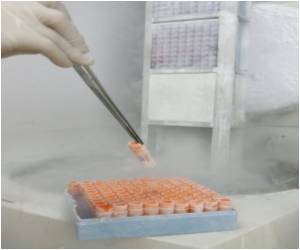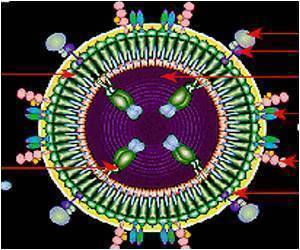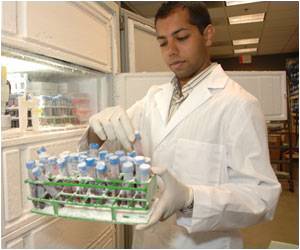Most of the time, the immune system is the body's protector, warding off invading viruses and bacteria before they can lead to infection and disease.

"Dr. Altman's finding is a breakthrough in our understanding of the complex biochemical changes that trigger the immune system's T lymphocytes, which are disease-fighting white blood cells, to mount an immunological attack," said Mitchell Kronenberg, Ph.D., president & chief scientific officer of the La Jolla Institute, an international leader in immunology research. Dr. Kronenberg said the discovery opens the door to the potential development of new therapies for multiple sclerosis, rheumatoid arthritis and a host of other autoimmune diseases by blocking the cellular interaction identified by Dr. Altman, thereby shutting off the unwanted immune attack.
The findings were published online today in the journal Nature Immunology in a paper entitled "A motif in the V3 domain of the kinase PKC-θ determines its localization in the immunological synapse and functions in T cells via association with CD28." The immunological synapse refers to that region of the T cell (also called T lymphocyte) membrane, which contacts antigen-presenting cells to initiate an immune response, and where many of the early activation events take place. La Jolla Institute scientist Kok-Fai Kong, Ph.D., was first author on the paper and Dr. Altman was senior author. Scientists from Japan and Israel also collaborated on the study.
Specifically, the findings provide new information about an enzyme — protein kinase C theta (PKC-θ) — discovered by Dr. Altman in humans in 1993 and known to be important for the activation of T lymphocytes. In 1997, scientists from the National Jewish Center for Immunology in Denver showed that PKC-θ is recruited to the immunological synapse when T cells encounter a foreign antigen. However, what has remained unknown ever since is the molecular basis for this recruitment and whether this is necessary for proper T cell activation.
Dr. Altman and his team set out to map the part of the PKC-θ enzyme involved in its recruitment, or co-localization, with the immunological synapse. They ended up identifying a previously unknown physical interaction that is key to this process between PKC-θ and CD28, a T cell stimulatory receptor, which has been known for a long time to be required for effective T cell activation. "We identified a small region of the enzyme, called the V3 region, that binds CD28, and demonstrated that this binding is critical for the enzyme's unique localization and its function," said Dr. Altman.
Christopher E. Rudd, Ph.D., a Professor of Molecular Immunology and Head of the Cell Signaling Section at Cambridge University, called the discovery a "big advance" in knowledge, with therapeutic implications. "Dr. Altman has mapped a novel interaction between PKC-θ and CD28, and has shown that this specific region modulates the immune system response to antigens," he said. "This now means that this region in PKC-θ can be targeted by novel therapeutics, or that protein fragments of the region itself could be used to treat a variety of immune disorders."
Advertisement
Dr. Altman said efforts to develop small molecule drugs to block the PKC-θ enzyme's activity have been ongoing at several drug companies based on the previous knowledge of the enzyme's importance in T cell activation. "Here, we have found an alternative way of blocking the function of PKC-θ, not by inhibiting its enzymatic activity, but by inhibiting its recruitment to the immunological synapse, which is that part of the cell where it needs to be to activate T cells," he said. "Essentially, the enzyme remains fully active, but it can't trigger T cell activation because it's not in the right place in the cell."
Advertisement
He noted, however, that creating a way to therapeutically block the binding of PKC-θ to CD28 is not an easy task, and will require creative strategies and diligence. "Several possibilities exist, such as using a peptide to block the interaction. However, getting a peptide into a T cell is not a trivial matter," said Dr. Altman. "While we consider our finding very promising, we know that developing a therapeutic to block this interaction is not something that will happen next year. It will take time, but the potential is exciting."
Source-Eurekalert











